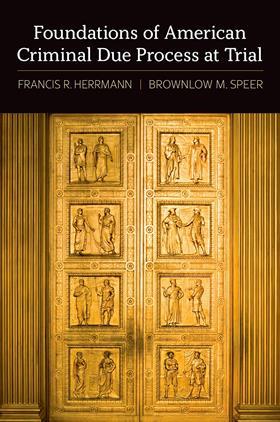Foundations of American Criminal Due Process at Trial
Francis R Herrmann, Brownlow M Speer
£71, Oxford University Press
★★★★✩
In the 17th century, English radicals such as the Leveller John Lilburne promoted the idea of the ‘Norman Yoke’. This theory claimed that before the Norman Conquest imposed the feudal system, England had been a beacon of freedom. The common law, which the Normans had suppressed and which the radicals wanted restored, was the birthright and particular genius of the English and their Anglo-Saxon forebears. English common law – and once exported to the North American colonies, Anglo-American common law – was seen as an autochthonous system of law for a unique people.
This excellent work, exploring the origins of due process in the American legal system, unintentionally addresses common law’s origin myths. Drawing on a range of sources, Herrmann and Speer trace the genesis of many of these principles, and few of them are uniquely or originally English.

Principles such as an impartial judge, the right to confront the accuser, the right to be informed of charges, double jeopardy, and the right against self-incrimination all have equivalents in Roman law or Catholic canon law. These found their way into many European systems through the recovery of works such as Justinian’s Corpus Juris Civilis and commentaries such as Gratian’s Decretum – the Romano-Canonical hybrid becoming known as the ius commune – in the 12th to 14th centuries.
While the jury has a peculiarly English origin, many of the safeguards claimed by common law slipped into English law via church courts and the works of university-trained scholars such as 13th century jurist Henry de Bracton and Sir Edward Coke before the Civil War. When Lilburne, on trial for treason, demanded his rights under England’s ‘Ancient Constitution’, he was, possibly without knowing, demanding rights that were more ius commune than common law. At the time of the American War of Independence, the colonial administrations’ fears of losing these same rights, particularly trial by jury, played at least some part in the decision to declare independence.
A fascinating work, well-referenced and well-structured, covering a wide sweep of history.
James E Hurford is a solicitor at the Government Legal Department, London































No comments yet